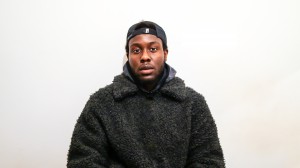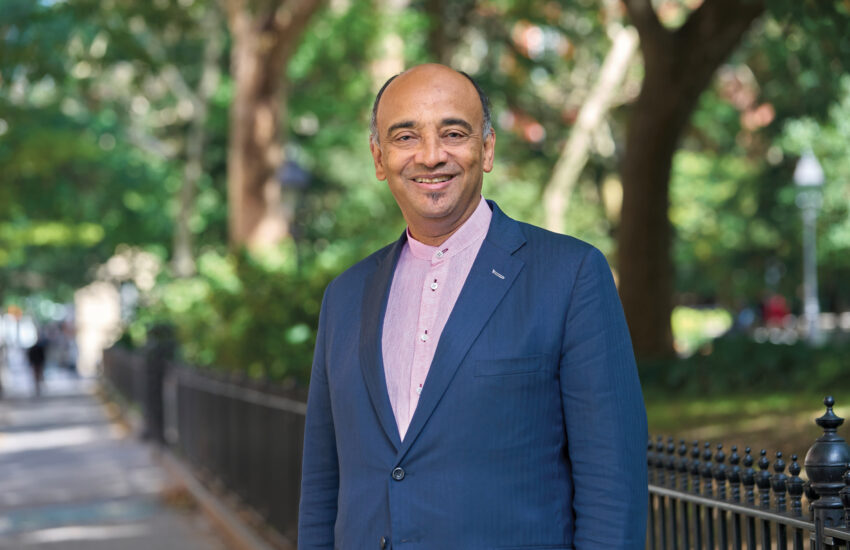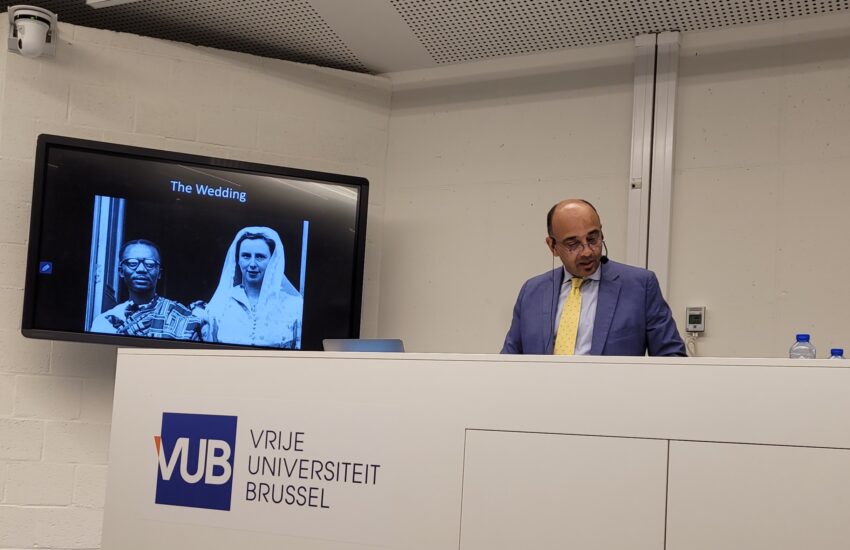Caleb Femi: Lines From LDN

Afropean’s Tommy Evans connects with Caleb Femi, The Young People’s Laureate for London. A poet, educator, photographer and filmmaker, Caleb effortlessly synthesises the verbal and the visual, addressing ideas and issues ranging from Grime music to black masculinities in his sui generis style. Caleb has captivated audiences from the Barbican to the British Library, from the Roundhouse to the Royal Festival Hall; accordingly, the two wordsmiths exchange notes on their craft as it appears on both page and stage.
TE: Please tell me a bit about your family background. I recall seeing one of your posts detailing a Hausa connection…
CF: My dad is half Fulani, half Yoruba and my mum is from Delta. I was born in Kano and lived in Jos – basically I lived in a Hausa area. I used to be able to speak Hausa.
TE: I’m still trying to get to grips with English! I admire jumpers for sale anyone who speaks more than one language. We white Brits tend to take monolingualism as the norm because English is a lingua franca around the world but monolingualism really is the exception to the global rule.
CF: That happens to me sometimes when I go to places and expect everybody can speak English
TE: It’s a bit lazy, isn’t it?
CF: Yeah, it’s so lazy. I’m in your country. I’ve come to you and I’m speaking English and I’m not even trying to ask you in your language if you can speak English. It’s so bizarre. However, if someone visited the UK and came up to me they wouldn’t just start speaking in their language; they’d use English first and perhaps ask if you spoke their language. It’s weird.
TE: You’re travelling a lot at the moment: Germany, Canada, Sweden and France. What sort of work are you doing?
CF: It’s a bit of everything, really. Sometimes it’s for a workshop, sometimes it’s to sit down at a conference just to talk, and sometimes it’s for other reasons. Recently, I did the creative direction for Suli’s show [fellow poet Suli Breaks’ “Not A Role Model” show] – him going to Canada meant I had to go. It’s for one reason or another; I’m going to Italy in a few weeks time to work with refugees.
TE: Do your skills in the visual arts inform your writing and vice versa or do you keep them separate?
CF: I try to put them all into one as much as possible. It’s really good, as if the writing gets a bit much and I hit a stumbling block I can switch over to photography. Sometimes it’s difficult when I have ideas and I want to do all of them but it’s also nice to have that freedom of intertwining different disciplines. Sometimes I use one skill as a stimulus for another one.
TE: Likewise. It’s a natural synthesis of disciplines. I’m especially involved in the visuals accompanying my verbal expression, right down to the typography.
CF: Typography is so important when it comes to reading poetry on the page. I’ve sat with people inside and outside of workshops and a lot of them haven’t been able to connect with a poem because of the typography. They might say they don’t like how it’s been written or there isn’t something about it that’s visually inviting. It was a big eye opener.
TE: It’s such a precise science and one that operates in a way that people don’t necessarily know how it’s affecting them. On another note, you recently performed with Cecilia Knapp and Jordan Stephens [of Rizzle Kicks]. How was that?
CF: It was really good. They both have a great energy. They made it easy to come on stage and read some poems and have a conversation. Nowadays I really focus on if performers are going into autopilot mode. When they’re done, they’re done. That’s it. The question is: how can we put ourselves in a position where everyone is listening even though only one person is talking but there’s still a conversation going on. If that doesn’t happen then it’s just performative: you’ve performed the role as a listener in the audience and you’ve performed your role as the speaker on stage and we’ve all gone home. Really, it should feel more conversational where everything I’m saying on stage you’re responding to.
TE: Does that demand a verbal response from the audience?
CF: Not always verbally. When you come on stage it’s up to you to disarm the audience and recalibrate them. The first thing you need to do is make them trust you. They can’t see you’re nervous as it makes them feel uneasy for you. Secondly, you need to be a mirror. They need to see themselves in you regardless of what background they come from – they need to relate somehow. That could be in the way you say hello or the fact that you smile. You just need to be yourself. I then think about what poem I’m performing and how it is relevant to the evening because some people turn up and they do their poem no matter what. They don’t read the situation, what has come before.
TE: Performance requires emotional intelligence.
CF: Emotional intelligence, yeah, all of that. It’s such a science. Once all of those conditions are met then me, as an audience member, I feel like I’m having a conversation with you, the performer. Even if I don’t come up to you afterwards, the next time I see you or talk to someone about you or read your work, I remember us being on the same level and it’s easier for me to access your work or future work. It’s easier for me to read or listen to anything you do henceforth.
TE Do you have a preference for writing or performing?
CF: I love them both but I feel a bit exhausted from performing at the moment so I’m trying not to be on stage as much as before. There’s an essence of me that’s tired. I don’t know what it was. Just tired. Mostly tired of space. It’s very taxing on poets, whether they know it or not; it’s taxing when you’re in a space that’s not conducive to creating the prime conditions for people to listen to poetry. That doesn’t necessarily mean a quiet library; I just think we need to do better with regards to the spaces we choose. Don’t pick a space that has a bar that’s less than 10 feet away from the stage, little things like that. Don’t pick a space with a toilet next to it and people need to pass through impeding upon the experience; just practical things about space. Once you get that right then you can really think about the non-physical space and how to mould it. I wouldn’t want to sit on a roller coaster and try to read a book: we have to find spaces that work for us. Nowadays, people are taking whatever space they can get. It’s not their fault, London is London, but we really need to look for spaces or create spaces that are conducive to people feeling relaxed. A lot of my Muslim friends mechanical bull for sale don’t really like to go to certain places where everyone around them is drinking whilst you’re trying to listen to poetry. It’s cool but let’s all just find a way that makes everything physically conducive to listening to poetry. When you walk into a place and you feel uninspired, you’re not going to be your best version of yourself on stage.
TE: Sometimes it has to be an efficient 1-0 “win” on stage if it’s an inattentive and indifferent audience. However, if it’s a creatively literate and enthusiastic crowd then you can go all out for that Germany thrashing Brazil 7-1 in the World Cup type of performance!
CF: I think you’re right. Some people try and fit poetry to their event and that jars me a lot. I’ve stopped doing that.
TE: I think I’m more mercantile: show me the money, baby!
CF: No, if the money’s right –
TE: The money’s always right for me [Laughs]!
CF: [Laughs] All of that can be testing, especially if it’s what you love to do but you’ll do it regardless.
TE: Agreed. I performed “for the love” just the other night and it was so fulfilling. The feedback I received was incredible. It’s interesting how your work can have a life of its own.
CF: Literally. That’s it: once it leaves you, the poetry is no longer yours.
TE: Any poets on the scene you’re feeling right now?
CF: There’s a kid from Manchester, Isaiah Hull, he’s 18, 19; he was on Kate Tempest’s show on the BBC. Do you remember?
TE: I do.
CF: He was one of the opening poets. There were three.
TE: Yeah, Deanna Rodger was one.
CF: Yeah, He was one and the older guy, David J. Pugilist. I really liked Isaiah. He has a really mature voice. He knows how he writes and what he wants to do. For that age, it’s really amazing. He writes very well with obscure references; you need to listen to it three times to understand each layer. I like him and Alice Oswald: she’s got a collection of poetry called “Falling Awake”. It’s absolutely brilliant but she’s very underrated. I saw her perform at the TS Eliot Prize and she gave the most powerful ten minutes ever. It’s like she was somebody else and she was powerful with it. She was not meek; she was hitting you in the face. It felt like she was looking at me in the eye. She was burning through the audience reading with such wondrous intent. Her poems are short. She didn’t talk between them. She’d give you two seconds to recover and then would be back in. At the end everybody was silent, then everybody just looked at each other and there was a huge roar and a standing ovation. It put me to shame. I’d never read as good as that and had probably read more times than she had. She has a few decades over me but I come from a performative space. Not only had she outclassed me on the page but in the physical performance.
TE: Which is inspiring.
CF: It is because I went home and thought I’m not performing for a while. I’ve got to step it up on and off the page. It has to work in performance and on the page; there can be no disparity.
TE: I love seeing artists better than myself. I’m not an insecure guy.
CF: Yeah.
TF: I had two moments last year similar to your own experience. It was the first time I saw Amina Jama – who you know too – and Magero. Both of them took it to another level and that can only inspire you as a creative to do the same.
CF: Exactly.
http://www.calebfemi.com


